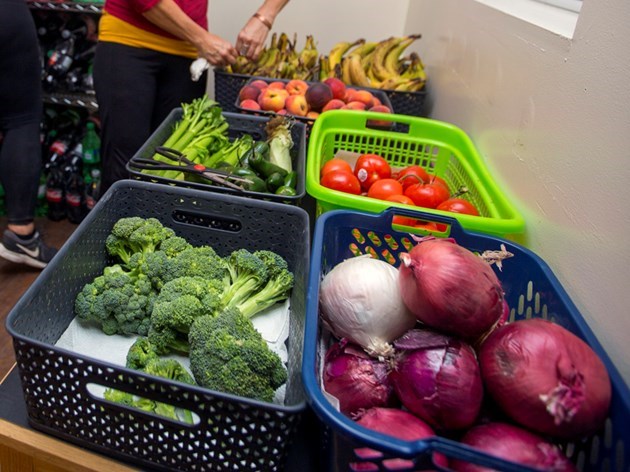BANFF – Affordability, food waste and access to healthy and organic foods are some of the key food concerns in Banff revealed in a recent food study.
Initiated through the Bow Valley Food Alliance, the goal of Imagining Food in Banff was to gain a better understanding of the strength and issues related to food in the mountain town.
"You see the pressure of choosing between paying for rent and buying groceries, as the cost of accommodation is not compatible with wages," Kevin Driver with the Banff Full Gospel Church said in the report.
With affordability at the top of the list of issues, people interviewed noted the food costs in Banff are "exacerbated by housing cost" along with low wages with an prevalent attitude that if you cannot afford housing and food in Banff, then you should move somewhere else.
Banff residents were quoted as saying they felt the difficult issues such as food security were "brushed under the rug" and said they feel there is a need for more understanding and communication about food issues in the community.
"I'd say people don't feel like they have decision-making power over the food that's available in Banff because it caters to tourists, four million of them," said holistic nutritionist Dawn Byford.
Along with affordability, eight other key issues arose when talking with residents, including access to and support for food programs, spaces to grow, prepare and gather, and community decision-making and ability to shape food systems.
"When asked whether they thought community members were able to meaningfully contribute to decision-making relating to food in Banff, the majority of the interviewees answered with a simple 'no,' " the report stated.
The lack of availability of fresh, healthy, local and culturally appropriate food was noted as an issue not only for households, but for restaurants and community-based programs as well.
But with nine key issues brought up, residents also acknowledged Banff's food strengths, such as community lunches and dinners, Banff Food Rescue, the Banff Farmers Market, food boxes, community growing spaces and the Bow Valley Food Alliance.
"Food rescue is an example of how people can start something and get the community to rally around it," Councillor Corrie DiManno said in the report.
"The way it's run also makes a lot of sense for Banff because Banff is fast paced, it's 24/7, it's people coming and going for both long and short amounts of time. I think the food rescue had really figured out the secret of making food available to people."
Growing spaces was also an issue brought up, but residents highlighted the already available spaces as a strength too, including the Banff Community Greenhouses, a backyard garden share program, and the Banff Springs Greenhouse.
"The greenhouse plays many roles. Education advocacy, growing food to eat ... it also helps people develop a connection to our food system, helps them understand where our food comes from, how it's grown, and helps people realize how tough it can be to grow things," said Andrew Oosting with the Banff Greenhouse Gardening Society.
The report made ten recommendations for the community.
Asking for "blue sky aspirations alongside more practical day-to-day recommendations," local residents asked for increased food education, to grow more food in the Valley, support for community food programs, to foster new and current partnerships, and increase the amount of affordable, healthy, locally-grown and sustainable foods.
Creating positive food policies, supporting diverse food cultures, developing more food-related spaces, supporting small food business and making food a priority in all community discussions, were also recommended.
"If we are looking at health in all facets – mentally, physically, emotionally and spiritually – food is key to all of those," said Zarifa Salzgeber with the Bow Valley Primary Care Network.
"And if you have to eat in the cafeteria and you can't prepare any of your own food, that's a problem."
For more information on all the food initiatives happening in the valley, or to download a copy of the report, visit the Bow Valley Food Alliance Facebook page.






